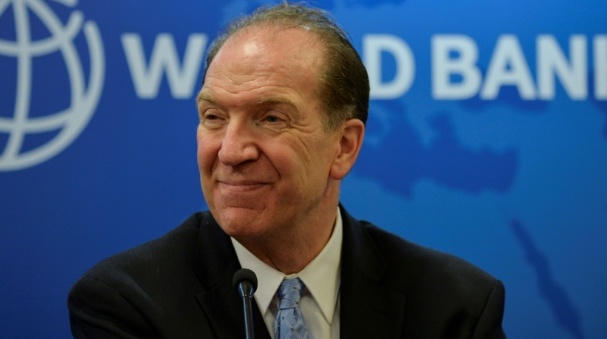Business
World Bank lists problems Nigeria faces due to black market rate

The President of the World Bank Group, David Malpass, has warned against the parallel exchange rate, stating that it impedes foreign investment, affects the bank’s projects, as well as worsens debt problems in countries like Nigeria.
In a statement reported on Thursday, Malpass said the parallel rate is also associated with higher inflation and leads to lower growth.
He complained about the black market rates in Nigeria and 23 other emerging and developing countries, which he disclosed have more than a 10 per cent difference between the official and the parallel rate.
Malpass made this known in a report titled; ‘Parallel Exchange Rates: The World Bank’s Approach to Helping People in Developing Countries’.
It was revealed that Nigeria has an exchange rate premium of 61.7 per cent as of March 2023, adding that there’s a correlation between the existence of parallel rates and corruption.
“The economics on parallel exchange rates is clear: they are expensive, highly distortionary for all market participants, are associated with higher inflation, impede private sector development and foreign investment, and lead to lower growth.
“They benefit the group that has access to foreign exchange at the subsidized rate, paid for by everyone else (which may include the World Bank Group and its stakeholders).
“Hence, there is also a strong correlation, if not causation, between the existence of parallel rates and corruption.”
READ ALSO:World Bank loan to Nigeria rises by $410 million in first quarter 2023
Nigeria, Argentina and Ethiopia have achieved little progress in addressing the parallel rate issue according to Malpass, “Often, countries adopt parallel exchange rates during balance-of-payments problems.
“IMF policies call for addressing exchange rate distortions, but progress has been limited in several countries with wide spreads, including Argentina, Ethiopia, and Nigeria,” he said.
Malpass disclosed that the parallel rate system affects World Bank projects, as it reduces the value of funds disbursed to Nigeria and other emerging and developing countries.
He also stated that the parallel system worsens the debt burden of the countries, “Parallel exchange rate markets can also significantly diminish the impact of World Bank projects. A primary problem is the lack of value-for-money when financing projects that have local currency expenses.
“When World Bank dollar-denominated loans are converted into local currency at the overvalued official rate, fewer local-currency resources are available than if the exchange had happened at the parallel market rate.
“This reduces the development impact of World Bank operations. For example, if the World Bank operation is financing cash transfers for the poor paid in local currency, this means fewer people will enjoy the benefit.
“A second problem is that some of the proceeds from the World Bank loan (which are in dollars) can be diverted by governments to finance expenditures not related to the project and could lend themselves to corrupt practices.
“A related problem is that the government incurs higher foreign-currency debt to achieve a given level of local-currency spending on the project, making future debt service payments more burdensome and increasing the risk of debt distress. On a larger scale, there is a risk that sizable World Bank financing that provides funding through the parallel market regime perpetuates it,” the World Bank president stated in the statement.
Join the conversation
Support Ripples Nigeria, hold up solutions journalism
Balanced, fearless journalism driven by data comes at huge financial costs.
As a media platform, we hold leadership accountable and will not trade the right to press freedom and free speech for a piece of cake.
If you like what we do, and are ready to uphold solutions journalism, kindly donate to the Ripples Nigeria cause.
Your support would help to ensure that citizens and institutions continue to have free access to credible and reliable information for societal development.






















